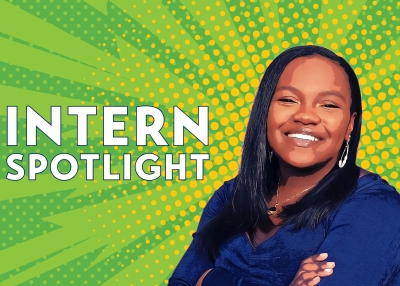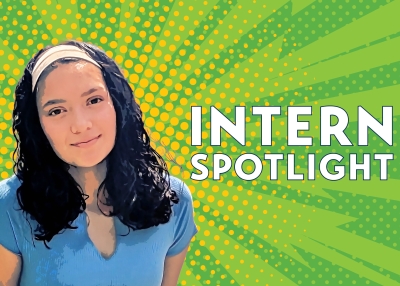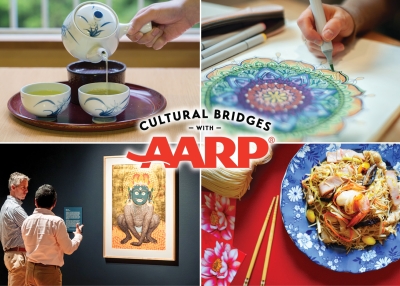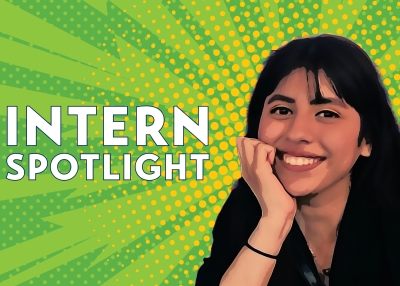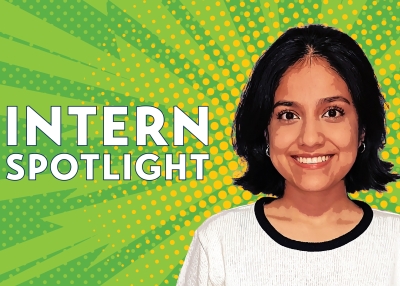Former Dean of Harvard School of Public Health Answers Questions about COVID-19 Vaccines
Asia Society at Home
Learn More
HOUSTON, January 8, 2021 — Asia Society Texas Center began the new year with a webcast on COVID-19 vaccines, with former Dean of the Harvard T.H. Chan School of Public Health Dr. Barry Bloom joining New York Times reporter Apoorva Mandavilli in conversation. They discussed the two current vaccines available in the U.S. — including the vaccines’ safety and efficacy and the logistics involved in their distribution – as well as the vital need for trust and equity in the continuing fight against the coronavirus pandemic over the next few months and years.
The development of COVID-19 vaccines is a success story
Dr. Bloom began the program by calling the Moderna and Pfizer COVID-19 vaccines success stories, to have been created, trialed, and approved for emergency use within 11 months of the initial identification of the Sars-CoV-2 DNA. He called it “extraordinary” to have the vaccines ready for public distribution within a year, given that vaccines for other diseases such as mumps and typhoid fever have taken anywhere from four to 27 years.
However, Dr. Bloom also spoke to the nervousness some people might have with the “warp speed” pace of the COVID-19 vaccines by noting that much of the development relied on nearly 20 years of previous scientific research. He said the research around existing coronaviruses such as H1N1 and SARS as well as new technologies in creating vaccines, particularly those relying on the modification of mRNA structures, allowed scientists to create responses to new pathogens more quickly. He also emphasized that the COVID-19 vaccines underwent the same clinical trials as every other vaccine, and had been tested in over half a million people to evaluate their safety and efficacy.
Answering questions about the vaccines
Though vaccines are now available and providing hope against the global pandemic, Dr. Bloom recognized that much of the public may still have questions about how safe or effective the vaccines are, especially for specific populations. “It is very reasonable for thoughtful people to say, ‘Wait a minute, I want to know what the evidence is that this vaccine works,’” he said.
To that end, he answered audience questions throughout the program, addressing for example how long immunity would last – about nine months, according to data from clinical trials. He also recommended against taking only one dose of the two-dose vaccine, explaining that while the amount of antibodies from one dose may offer some protection, it is unclear how long immunity would last, and this lesser protection could undercut general trust in the vaccine. He added he is hopeful about future vaccine candidates that would offer protection in a single shot.
Dr. Bloom also responded to questions about side effects or allergic reactions associated with the vaccines, noting that while no vaccine is 100 percent effective, the current iterations — with only 21 cases of adverse reactions out of 2 million people who have been vaccinated – are considered safe and successful. He said it is important to document the ongoing vaccine administration to better understand long-term effects in the population. Additionally, he noted that ongoing studies of COVID-19 are necessary to develop pediatric vaccines that are the most effective for children.
Finally, Dr. Bloom discussed the new variants of COVID-19 that have emerged in the U.K., South Africa, and Brazil that may be more transmissible, or whose mutations may make the vaccine less effective. He acknowledged there is some cause for concern, but also indicated it is natural for coronaviruses to mutate and that new versions of the existing COVID-19 vaccines can also be rapidly developed to respond to new mutations.
Getting the vaccines to the people who need them
Dr. Bloom said that with limited vaccine quantities, ethical principles dictate providing the maximum benefit to the most people – with consideration for fairness, inequalities in health outcomes, and those facing the greatest risk of disease. To that end, he noted the CDC has recommended that healthcare workers and residents of long-term care facilities be vaccinated first, followed by frontline essential workers and people over the age of 75. Dr. Bloom also added it is essential to reach those in minority and underserved communities, whom he acknowledged tend to have historical reasons for distrust of vaccines but are also more disproportionately affected by the pandemic. He recommended relying on trusted figures in the community, such as religious leaders or athletes who have a sustained history of connecting with the people, to communicate the relevant health information.
Acknowledging that vaccine rollout in the U.S. has been slower than originally hoped for, Dr. Bloom pointed to the numerous challenges involved in widespread distribution. Though the national Centers for Disease Control has set out guidelines on which groups should be prioritized for vaccination, each state operates independently with its own healthcare infrastructure and subsequent complications. According to Dr. Bloom, these include distribution to rural versus urban areas of states, the delicate cold-storage requirements for the Pfizer vaccine, and reduced budgets for training staff in the administration of the vaccines, among other concerns. He said he anticipates the new Biden administration will deliver more funding to the states and create better information and recording systems of those who have been vaccinated, and said he believes that the process will smooth out and ramp up by February.
Help Us Build a More Inclusive World
Winning the race against the virus
In the race between virus and vaccine, Dr. Bloom said the key element is time: the pace of coronavirus transmissions and subsequent mutations compared to society’s ability to build immunity to COVID-19. He explained that the higher number of viruses in the environment, the more variants are likely, so it is important to bring the number of viruses down through 1) public health practices such as social distancing, wearing masks, increasing testing, and quarantining and isolating, and 2) getting people vaccinated.
“It’s the number of viruses floating in the community that determine how safe we are going to be and how quickly we are going to be able to get rid of this problem,” Dr. Bloom said. “And the fewer viruses out there, the quicker we can go back to normal life.”
Business and Policy programs are endowed by Huffington Foundation. We give special thanks to Bank of America, Muffet Blake, Anne and Albert Chao, ConocoPhillips, ExxonMobil, Nancy Pollok Guinee, and United Airlines, Presenting Sponsors of Business and Policy programs; Nancy C. Allen, Chinhui Juhn and Eddie Allen, and Leslie and Brad Bucher, Presenting Sponsors of Exhibitions; Dr. Ellen R. Gritz and Milton D. Rosenau, Presenting Sponsors of Performing Arts and Culture; Wells Fargo, Presenting Sponsor of Education & Outreach; and Mitsubishi Corporation (Americas), Presenting Sponsor of the Japan Series. General support of programs and exhibitions is provided by The Brown Foundation, Inc., The Hearst Foundation, Inc., Houston Endowment, Inc., the City of Houston through Houston Arts Alliance, McKinsey & Company, Inc., National Endowment for the Arts, Texas Commission on the Arts, Vinson & Elkins LLP, and Mary Lawrence Porter, as well as Friends of Asia Society.
About Asia Society at Home
We are dedicated to continuing our mission of building cross-cultural understanding and uplifting human connectivity. Using digital tools, we bring you content for all ages and conversations that matter, in order to spark curiosity about Asia and to foster empathy.
About Asia Society Texas Center
With 13 locations throughout the world, Asia Society is the leading educational organization promoting mutual understanding and strengthening partnerships among the peoples, leaders, and institutions of Asia and West. Asia Society Texas Center executes the global mission with a local focus, enriching and engaging the vast diversity of Houston through innovative, relevant programs in arts and culture, business and policy, education, and community outreach.
